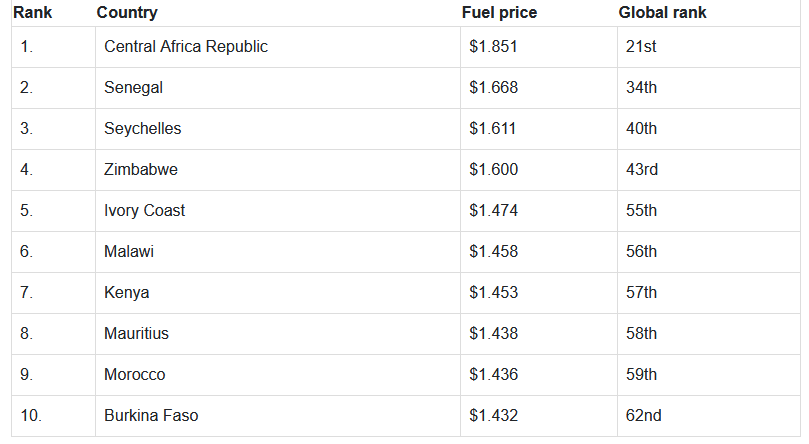High fuel costs in various African countries have long been a pressing issue, impacting economies, businesses, and residents’ daily lives.
Despite Africa’s vast oil reserves—particularly in Nigeria, Angola, and Algeria—the majority of crude oil is exported due to inadequate processing infrastructure. As a result, many African nations rely heavily on imported refined petroleum, which increases transportation and import costs, leading to higher fuel prices.
These elevated fuel costs directly affect transportation expenses, driving up prices for goods and services, especially in countries where road transport is the primary means of moving products.
Moreover, fuel-intensive sectors such as agriculture, manufacturing, and mining feel the impact of rising fuel costs more acutely.

Increased production costs can erode profitability and hinder growth, particularly for small and medium-sized enterprises (SMEs) that depend on fuel for power generation in areas with unreliable energy supplies.
The global average fuel price is $1.29 per litre, down from $1.31 per litre last month.
Despite this global decline, fuel prices in Seychelles, Zimbabwe, the Central African Republic, Senegal, and Ivory Coast saw slight increases in September compared to the previous month.
Meanwhile, prices in Malawi and Morocco dipped slightly, while Kenya’s remained steady at $1.453 per litre.
Notably, Uganda and Sierra Leone dropped off the top ten list this month, with Mauritius and Burkina Faso making their debut.
With that in mind, here are the ten African countries with the highest fuel prices as of September 2024, according to GlobalPetrolPrices.com, last updated on September 9, 2024.



